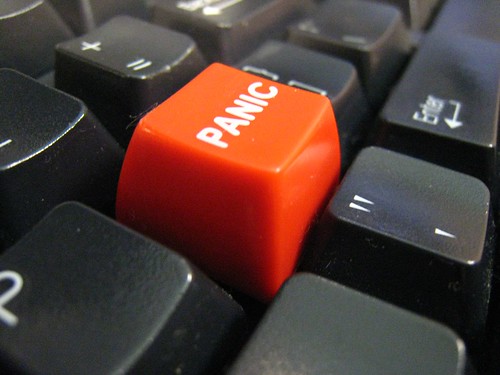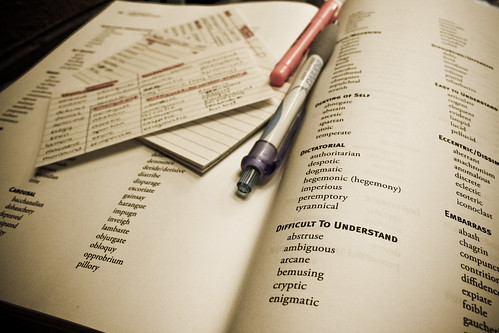
It's OK, don't panic! Unless you're one of those sick people who actually enjoys math, it's completely natural for your brain to clean house on all arithmetic knowledge the moment that high school diploma hits your hand.
Thank goodness I started studying for the College Algebra CLEP almost immediately after finishing Algebra 2 in high school, before my brain hit the "clean" button and turned every formula in there to ash. I bought the REA book on the subject and dove in, but little did I know that the next year would have to be devoted to plodding through textbooks, pretests, sessions with a personal tutor, and frequent bouts of tears. Math is my arch-nemesis, in case you couldn't guess.
Be forewarned: the Algebra CLEP is not for everyone. There are several points to consider before deciding to take this test, on which I will give my personal opinions here:
- If you're not a math whiz and want to get credit for Algebra the simple way, I'd recommend a college course. Just go to classes, do the homework, and get a private tutor.
- If you're not a math whiz and want to get credit the cheap way or at your own pace, consider taking the CLEP. It takes self-discipline, but the advantages are a custom study-schedule and affordability.
- If you're somewhere in the middle between whiz and non-whiz, then maybe you want to study for the CLEP test so that even if you don't pass it you'll be better equipped to breeze through a college algebra class. This is the middle road, with the CLEP acting as a safety net.
- If you're a math whiz and don't have the discipline required for self-study, then enroll in a college course, breeze through, and you're on your way.
- If you're a math whiz and want to skip the stuff you already know, take the CLEP test, then move on to something more advanced if you wish.
Going to a brick and mortar college wasn't an option for me, and I wanted to get math out of the way, so I tackled the CLEP. If you're doing the same, but are hindered by a bad case of math-memory loss, here are some resources that might prove helpful.
This is a great place to get started. Take one of the practice tests and see how well you do, then gauge how far you have to go. Keep studying until you can master most of the problems in this book, and you should be ready to pass with flying colors!
This is a book I used, and it was awesome! Rhonda Huettenmueller explains complex problems in a beautifully elemental way, and was able to help even my math-impaired brain through the steps of algebraic equations.
Basic Math & Pre-Algebra Workbook for Dummies
If you've really forgotten everything you ever learned,


















